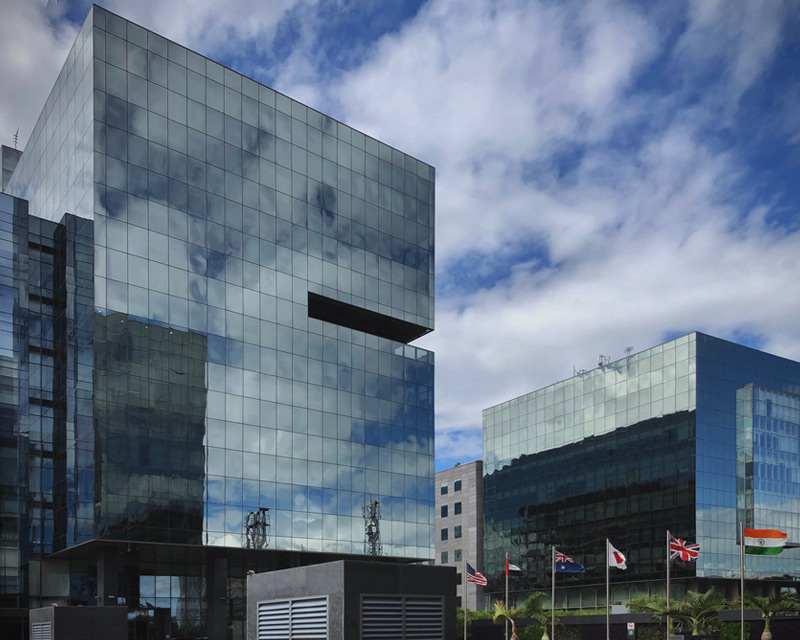Rahul is angry. He is not sure if he is angry with himself, or with his employer, or with the world at large.
Rahul is a a 33- year old software project manager, is based in California, and works for an Indian software company. He has been in the US for 10 years now, has recently got his green card and will be soon applying for US citizenship.
He has just got off the phone with his friend and peer, Nikhil, in India and he hung up with this sinking feeling which he gets every time he speaks to Nikhil nowadays.
A tale of two friends
Nikhil and Rahul both had started their career together 12 years back with a major software company, one of the largest in India.
They were both smart, enthusiastic, and hard working and were sent to US by their employer after a couple of year of experience to work on a project for a major US bank. Nikhil returned back to India after a couple of years and Rahul stayed on.
Rahul was very sure that he liked it in US, that staying in US had a great value professionally, and personally, he would end up saving a huge amount of money, unthinkable in India.
Nikhil didn’t like it in US, and though he could not disagree with Rahul about the advantages of working and staying in US, he went back primarily for emotional reasons.
All along Rahul would always feel good about doing the smart thing by staying back.
He enjoys his work, enjoys his life outside the work, owns a good house in US and for some time now he has been feeling smug and comfortable, feeling that he has “arrived” in life.
Lately though, this feeling of having “arrived” gets dented every time he makes a trip to India or has a long conversation with a peer in India.
Growing faster in India..
He sees that Nikhil, his peer , 32 years old just as Rahul is, has been managing 100+ plus people for more than a couple of years now, and has moved up from being a good technical lead to a good project lead and grown into a manger of project leads within last 6 years. The offshore model followed by services industry means that a larger team always is in India and the opportunities for people management and project management exist where the bulk of the team exists. He now wonders as to what is the growth path available to him as he continues to be a senior technical specialist who does high end consulting and is an individual contributor who does not manage any team.
Rahul now wants to grow as a manager but sees very few opportunities in US for this and lately has a feeling of having missed the bus on this front.
…and saving more
In terms of money, Rahul always felt that those who stayed in US made more money and saved more money. It seemed like a holy grail. As he tracks Nikhil’s progress, he realizes that the gap has disappeared.
Rahul’s house in California, which he bought a few years back, is worth more than $500,000 today and he pays a mortgage payment of $2000 per month. His salary is $95,000 and he takes home $5,500. He has a goal to save 30% of his take home but he has to watch his expenses like a hawk to ensure he meets his goal and he slips sometimes. His average monthly saving is $1500.
All the money gets sucked up in mortgage payments, utility bills, and routine expenses. When he makes the routine trip to India or when they invites their parents/in laws, it burns a big hole in his savings.
Nikhil owns a house in Bangalore, which he bought 3 years back, and is now worth Rs.80 Lacs. His mortgage payment is Rs 20,000 . His salary is Rs.18 Lacs per year, and monthly take home is Rs.1,05,000. His average monthly saving is Rs.65,000 ($1666).
The credit and spending driven economy in US ensures that Rahul always has a $500+ debt on his credit card, which is equal to 10% of his take home. Nikhil, who too uses a credit card, has an average debt which is Rs.5,000 (less than 5% of his take home).
… living a good life
Rahul and Nikhil both are married and their spouses don’t work because they both have 3 year old kids. Rupa, Nikhil’s wife, as she manages the family with their 3 year old son often leans on her parents or her in laws both of whom stay in the same city. She finds time to pursue her interests in music and dance and volunteers at a local NGO every Saturday. Her mom looks after her son when she volunteers.
Chitra, Rahul’s wife, was a good sitar player when she was in India and she tried to keep up with her lessons when she came here. Rahul supported her fully, but the daily challenge of life with a 3 year old son with no parents staying with you makes it difficult for her to continue it. Chitra likes it here now though she hated it initially, and now that they both have a green card and she can work if she wants to, she chooses not to work for she does not want to put the kid in day care. She envies Rupa who has all the support of family and maids, and cook, and often wonders if all the struggle here is worth it.
Rahul and Chitra stayed with Nikhil and Rupa for a few days during their trip to India this time. The infrastructural challenges apart, Rahul observed that once they are inside the plush house inside the gated community built on the outskirts of Bangalore, you cant tell the difference. Nikhil has all the amenities which Rahul has in US inside the house and though the roads and traffic and malls is no comparison, Rahul told himself silently that you don’t live inside the malls or on the roads.
….. success isn’t easy once you get back…..
As Rahul , to his own surprise, toys with the idea of going back to India, and working in the Bangalore office, he is reminded of what happened to Rupesh last year. Rupesh, was another peer of Rahul and Nikhil who worked with Rahul in US for 10 years.
He moved to India last year and faced several challenges. He took on a role as manager of a 50 people team but his inexperience in managing a team of this size was soon evident and cracks started showing early.
His team resented him as his suggestions were often not realistic and he seemed to carry an invisible self fixed crown, courtesy the 10 years experience in US.
It took him a year to realize that in the challenging work environment today, you need to prove yourself every day, keep yourself relevant and growing, and an experience of working in US is no longer a sufficient guarantee to be a good technical and people leader.
Rupesh is settling down but does not figure in the top 50% bracket of his peers, which he always thought he was. The transparent management practices followed by his employer have made him painfully aware of that reality.
Rahul, much as he hates to admit, is feeling caught in a grip. He sees lesser opportunities for growth in US with the challenges not getting any lesser. If he chooses to return to India, which is a hard decision, he realizes that success in India is no longer a guarantee and the longer he delays the return, harder will it get to get adjusted in the professional fabric of his parent company back home. As Rahul realizes that the advantages of US are fading, he knows he needs to decide fast.
Nandan Nilekani, as quoted by Friedman, was right. World is indeed getting flat!










